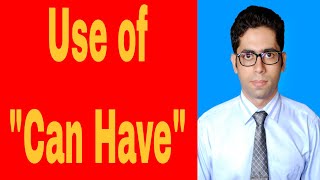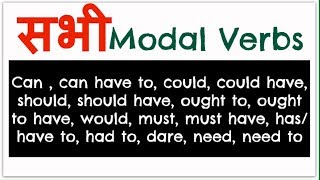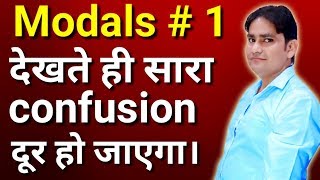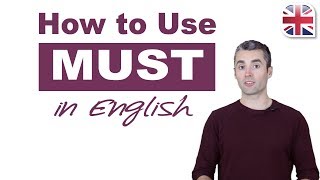Tuesday, 13 January, 2026г.
















Где искать: по сайтам Запорожской области, статьи, видео ролики
пример: покупка автомобиля в Запорожье
Modal Verbs in use (part 1 of 2). How to use Modals - Learn English with Julia
In today's Grammar Lesson let's learn about Modal Verbs - 1 of 2 videos: Modals are auxiliary verbs: will, shall, ought to, can, could, would, must...
Learn English with Julia! Subscribe to my channel today!
Don’t forget to check out my website:
https://www.yourenglishhub.com for more free English lessons (with quizzes, downloadable PDFs, and more)
and connect through social media:
https://www.facebook.com/learnenglishwithjulia/
https://plus.google.com/u/0/+LearnEnglishwithJulia
https://www.pinterest.es/learnenglishwithjulia/
https://twitter.com/learnwithjulia
Transcript of video:
Hello and welcome to this video dedicated to the Modal Verbs!
Modal verbs have their own peculiarities.
They do not function like normal regular verbs.
Why is that?
First, because they belong to this category: AUXILIARY VERBS.
They don't exist in all the tenses.
And when we create negative or interrogative form
they don't use the auxiliary TO DO
like most verbs in certain tenses.
So what are the modals?
Here is a list of modals.
CAN, COULD, MAY, MIGHT, SHALL, SHOULD, WILL, WOULD, MUST
and in some grammar books, OUGHT TO,
which also appears on my list.
Well, when we use modals?
We use them when we want to emphasise something,
a request, permission, habits or even advice.
And they always project either a degree of certainty,
Is something possible, improbable, certain?
or an obligation,
freedom to act,
inability,
or ability.
Well, when I mentioned equivalents earlier on,
let's say for example:
that I wish to say: I must leave now
in the past.
I would not be able to say * YESTERDAY I MUST LEAVE THEN.
I would have to use an equivalent verb
in this case TO HAVE TO.
Yesterday I HAD TO LEAVE THEN.
In this example:
MUST = HAVE TO.
Now, TO HAVE TO here is an equivalent verb.
However, in certain cases like: MAY or MIGHT
I don't always have an equivalent verb.
So I might want to use an adverb such as: "perhaps"
or even the adjective "likely".
If you wish to express the same thing
in a different time / tense or in a different manner.
And certain modals are used to form a specific tense such as
WILL is used to form the future tenses
WOULD is used for conditional.
So keep that in mind when you complete the interactive exercises after this video.
Here are some hints for you in the classroom.
Many errors are due to prepositions in English.
This is one of them
So instead of saying I MUST TO LEAVE NOW *
we must bear in mind that after a modal verb
there is no "to".
I MUST LEAVE NOW.
So, CAN YOU SPEAK ENGLISH?
and no CAN YOU TO SPEAK ENGLISH *? Be careful.
Negative and question forms:
Many errors arise there.
They function differently.
In the second part of this video we'll see how.
And as I mentioned before, they do not exist in all the tenses.
We'll try and look at that now together.
Welcome back!
We will conclude this video
with a quick timeline.
When I can use the modals?
Do they exist in all the tenses?
And if they don't, what are their equivalents?
Okay, let's start with CAN.
If I wish to use CAN
I can do so but only in the simple present.
If I want to express the same idea in the past or conditional,
I'll have to use COULD
What happens in the future?
I'll have to use the equivalent TO BE ABLE TO.
I will be able to.
MAY.
MAY is often considered equal to MIGHT
but you can also say that it is more of a CONDITIONAL.
In the future, I'll have to use adverbs or expressions including adjectives:
PERHAPS (maybe), TO BE LIKELY TO.
WILL and SHALL are equivalent.
They express future.
They are auxiliary verbs that allow me to express an idea in the simple future.
They don't exist in the present. They is no equivalent.
However in the past or conditional
we would use WOULD or SHOULD
And finally, to express OBLIGATION,
I will use MUST
Its equivalent is TO HAVE TO in the past, conditional, and future.
That's it for today!
Thanks for watching!
Help us caption & translate this video!
https://amara.org/v/dklB/
Теги:
Modal verb modals auxiliary verb auxiliaries verbs grammar english learn english classes free learn learning Lessons tefl tesol efl modal verbs can could learn english with Julia english grammar english tenses use of english teach english julia ielts toefl fce cae trinity exam
Похожие видео
Мой аккаунт


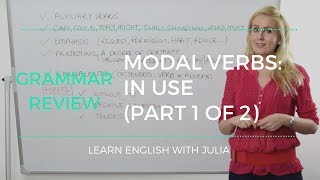 У вашего броузера проблема в совместимости с HTML5
У вашего броузера проблема в совместимости с HTML5